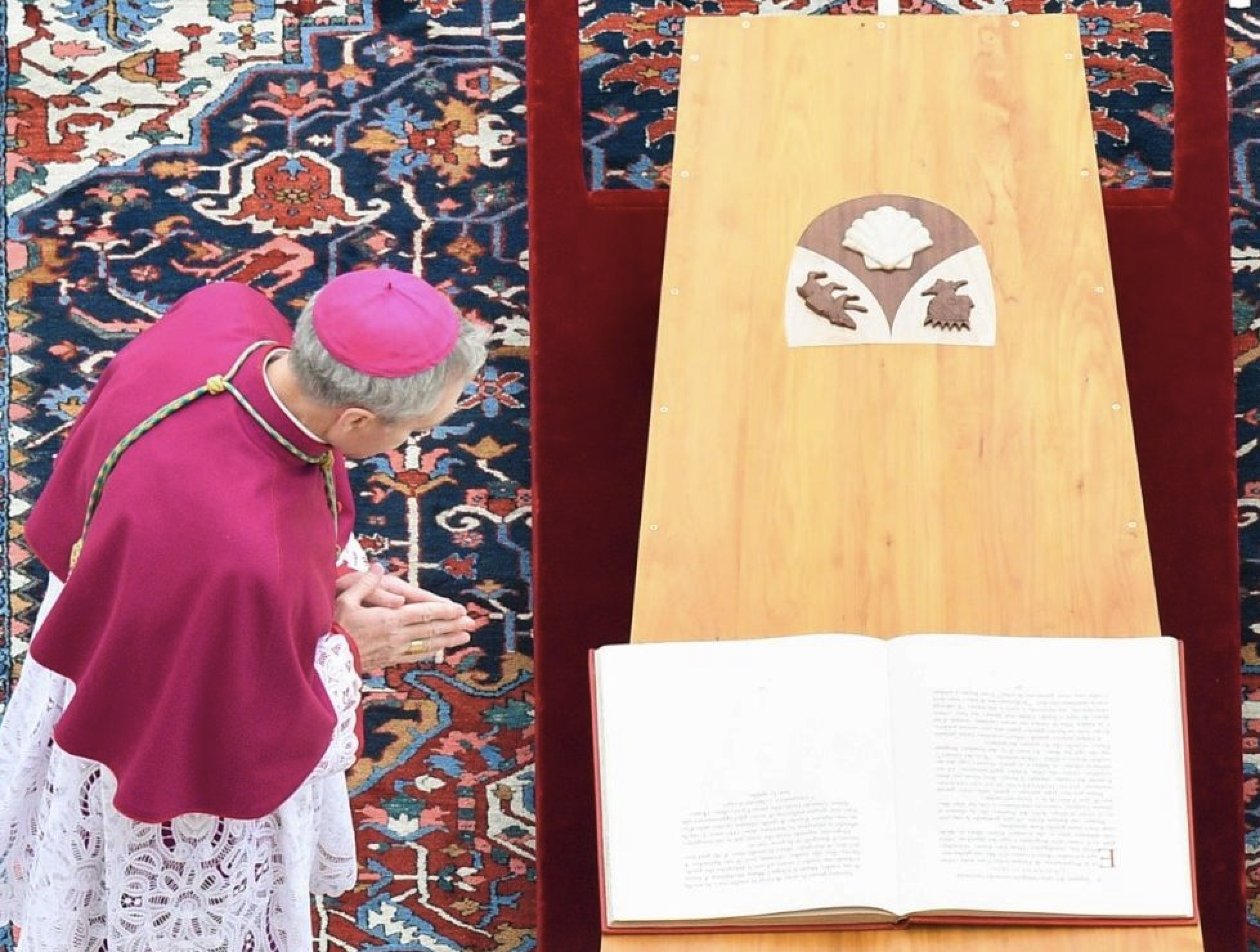In a rite before the funeral of Pope Emeritus Benedict XVI, Vatican officials placed unique symbols of his pontificate inside his cypress casket, along with a scroll in Latin describing his ascent to the Chair of St. Peter.
"His faith and family upbringing prepared him for the harsh experience of the problems connected with the Nazi regime, aware of the climate of strong hostility towards the Catholic Church," said the English translation of this "rogito," or deed. "In this complex situation, he discovered the beauty and truth of faith in Christ."
After deserting the German army without firing a shot, Josef Ratzinger began his theology studies and, in 1951, was ordained a priest. He emerged as an intellectual voice preaching hope, as opposed to mere optimism. The future pope's sobering views on modern Europe would affect his entire career -- as well as debates about his legacy when he died.
"This so-called Christian Europe … has become the birthplace of a new paganism, which is growing steadily in the heart of the Church, and threatens to undermine her from within," said Ratzinger, in a 1958 lecture. This modern church "is no longer, as she once was, a Church composed of pagans who have become Christians, but a Church of pagans, who still call themselves Christians."
Four years later, the 35-year-old priest advised Cardinal Joseph Frings of Cologne during the historic Second Vatican Council, emerging as a "progressive" on reform issues, yet one who saw painful challenges ahead.
"From the crisis of today the church of tomorrow will emerge – a church that has lost much," he warned, on German radio in 1969. "As the number of her adherents diminishes, so it will lose many of her social privileges. In contrast to an earlier age, it will be seen much more as a voluntary society, entered only by free decision. As a small society, it will make much bigger demands on the initiative of her individual members."
Ratzinger envisioned a "more spiritual church" with no political mandate, "flirting as little with the left as with the right. … It will make her poor and cause her to become the church of the meek."
These words grew in importance when he became an archbishop in 1977 and then a cardinal. Later, Pope John Paul II made him prefect of the Vatican's Congregation for the Doctrine of the Faith, where his orthodoxy inspired liberals to pin a "God's Rottweiler" label on the bookish, even shy theologian.


